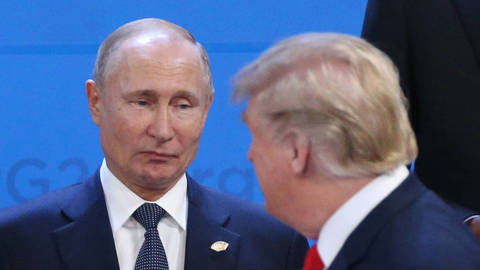https://prosyn.org/jg953hn
New Comment
Email this piece to a friend
Contact us
Please select an option
Please wait, fetching the form
Please wait, fetching the form
Please wait, fetching the form
Please wait, fetching the form
Please wait, fetching the form
Please wait, fetching the form
Please wait, fetching the form
We hope you're enjoying our PS content
To have unlimited access to our content including in-depth commentaries, book reviews, exclusive interviews, PS OnPoint and PS The Big Picture, please subscribe










Anyone following the ‘oil edition’ of the soap-opera-that-is-Buenos-Aires-politics this week -- especially the rhetorical flourishes of the charismatic Keynesian economist Axel Kiciloff, the firebrand government spokesman for the re-nationalization of oil who once claimed to have “hypnotized” Argentina’s president Cristina Fernández de Kirchner -- may appreciate a quiet interlude to contemplate the time-worn repetitive nature of the themes.
Confronted by a now embittered and highly publicized conflict for supremacy between the private oil interests and YPF, public opinion in Buenos Aires retreated into its hostility towards foreign capital. In a typically zealous and ebullient fashion [the governing party] plunged into a campaign to win political dividends from the prevailing popular mood. They laid the issue before the electorate with characteristic panache, unceasingly cultivating popular aspirations for undisputed local control over national assets and latent resentments against foreign business. Oil nationalization was depicted as the sovereign remedy for the nation’s ills. Grandiose promises were delivered that the revenues from oil, once under national control, would permit the cancelation of the foreign debt, and render all future borrowing superfluous. Domestic manufacturers would be endowed with a limitless source of cheap power, which would permit a miraculous and painless transition to an industrial society. A state oil monopoly would make possible the elimination of all other forms of taxation, finally relieving the popular sectors of the irksome duties on imports which inflated the cost of living. Nationalization soon commanded enormous popularity among the middle classes; once geared to the oil flow, state revenues would no longer be subject to the unpredictable ebb and flow of foreign trade; afterwards there could be virtually no limits to the expansion of the public sector and the bureaucracy. With the oil royalties in their own hands, [the governing party] felt confident of perpetual supremacy.
That is from Argentina Since Independence, edited by Leslie Bethell.
It was the mid-1920s, during the era of a populist with a wonderful name - President Hipólito Yrigoyen.
Good analysis (register) of the current expropriation of YPF (privatized piecemeal in the early 1990s) from the Spanish multinational Repsol (who acquired most of it in 1999) is available at Financial Times. Jude Webber detailed the unfolding drama in recent weeks.
Of course Keynes did not support nationalizations as such. Nevertheless some nationalist intellectuals (French and Argentine for example) have wanted to make expropriation a component of Keynesian programs, and deputy minister Kiciloff appears to be only the latest in a long line of what Schumpeter dubbed “attempts to Keynesify Marx or to Marxify Keynes [which] are revelatory of prevailing ideologies”. It’s worth remembering this even today; even in Europe; for they have one or two elements of old logic in common.
Subscribe to PS Digital
Access every new PS commentary, our entire On Point suite of subscriber-exclusive content – including Longer Reads, Insider Interviews, Big Picture/Big Question, and Say More – and the full PS archive.
Subscribe Now